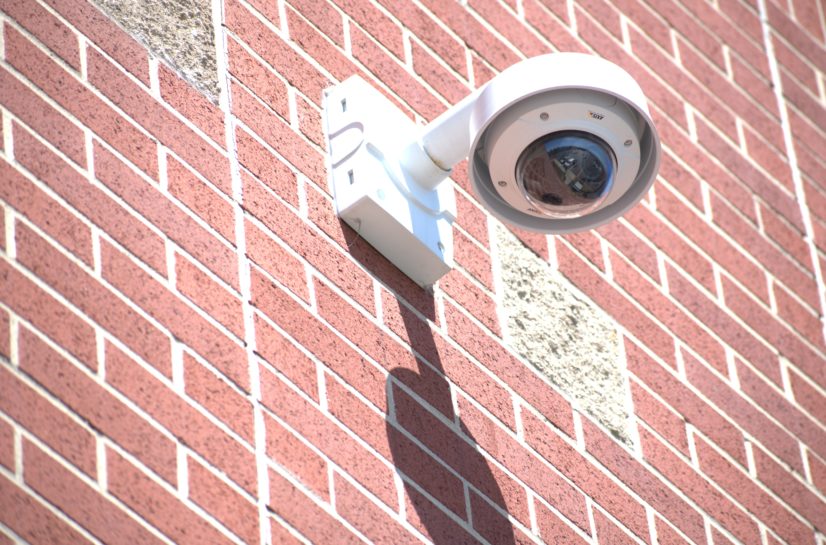Having a quality surveillance system is a must for business owners who want to secure their spaces. When investing in a new system or updating an existing system, choosing the right surveillance cameras is a key aspect in ensuring that the system will be functional and effective for your specific needs.
In terms of cameras, there are two main types to choose between — IP cameras and analog cameras. Each has its own pros and cons, but generally most organizations find that IP cameras are more beneficial long term. Here we’ll outline the difference between analog and IP security cameras, how to choose the right solution for your unique needs and how Taylored can help implement the surveillance system that’s best for you.
What Is an IP Camera?
IP (internet protocol) cameras, also known as network security cameras, are digital cameras that record footage similarly to analog cameras, but with many added features and increased benefits for organizations that are seeking a quality surveillance system. Most modern businesses and organizations choose IP cameras over traditional analog cameras due to the additional functionality and quality offered by IP cameras.
In order to function, these types of cameras must have a network connection. Because IP cameras are backed by the network, web and mobile applications can be used to control them, alter settings, view footage and images from anywhere when paired with a network video recorder. This means you can have added peace of mind and control over your security system regardless if you are at your location or not. This is particularly helpful as many businesses are shifting to a hybrid in-person/work-from-home environment.
Using PoE (power over ethernet) technology, IP cameras connect and run using a single ethernet cable, meaning organizations can establish a wider coverage area because there is no need to have separate power outlets available to set up the cameras. This makes them excellent choices for organizations hoping to have more control, flexibility, and adaptability over their systems.
The benefits of IP cameras include:
- State-of-the-art technology
- Wide range of features, such as easy transfer for large video files, motion detection, facial recognition, video analytics, etc.
- Easy installation
- Scalability
- High-resolution up to 4K, resulting in better zoom options
- Low maintenance
- Maximum coverage areas due to PoE capabilities
- Remote access
Although IP cameras can involve higher startup costs and are usually best installed by a professional, they are ideal for organizations looking for a quality system. By partnering with a knowledgeable and experienced provider, you can streamline IP camera costs and setup. Overall, IP cameras are well worth the investment for most businesses.
What Is an Analog Camera?
When you think about a typical surveillance system, analog cameras may be what you think of. These traditional video cameras have been around for decades and are available at most any box retailer. Some of the more modern versions record in HD resolution, but lack the added features and functionality that IP cameras offer. Analog cameras were most commonly used by small businesses and homeowners that need basic video surveillance, but they are outdated for businesses looking to get a quality system. The benefits of analog surveillance cameras include:
- Affordability
- Simple installation process
However, despite these benefits, analog cameras are a quick-fix solution that are not ideal for organizations looking for quality surveillance systems. Although HD analog cameras are available, they cannot be integrated into non-HD analog systems, making them a bad choice for organizations looking to easily update existing and outdated systems.
Which Camera Is Best?
As with any investment you make in your business or organization, the answer to this question depends on what your needs are, what solutions you currently have in place and what your budget is.
Some businesses still opt for analog cameras due to their wide availability, but they are not as cost effective as IP cameras in the long run for businesses who need quality security. HD Analog systems cannot be easily integrated into existing analog surveillance systems, making them a bad choice for those looking for a simple upgrade process in the future. Analog cameras also lack many of the advanced features of IP cameras.
For those looking for a quality surveillance system, IP cameras are the best choice due to their many features. These systems are flexible and scalable, and they can be upgraded or expanded easily over time. They can be cost effective as well, but that will depend on your current surveillance system and your overall needs.
The best way to determine which option is right for you is to meet with a professional who is well versed in surveillance technology. They can help you balance your needs, your budget and your current solutions.
Taylored — Video Surveillance and Tech Solutions for the Indianapolis Area
Taylored has been providing technology solutions, structured cabling and managed IT solutions throughout the Indianapolis area for more than three decades. We have helped create custom video surveillance solutions for businesses and organizations of all sizes and in many industries.
Our proven track record has helped establish us as the premier partner for Indiana business owners looking to update their existing surveillance systems or implement entirely new systems. When working with our client partners on video surveillance, we can pinpoint which type of camera would work best for their needs and budget, and help them install their ideal system. Contact us today to discuss your video surveillance system and see how the Taylored team can help make your vision a reality.

